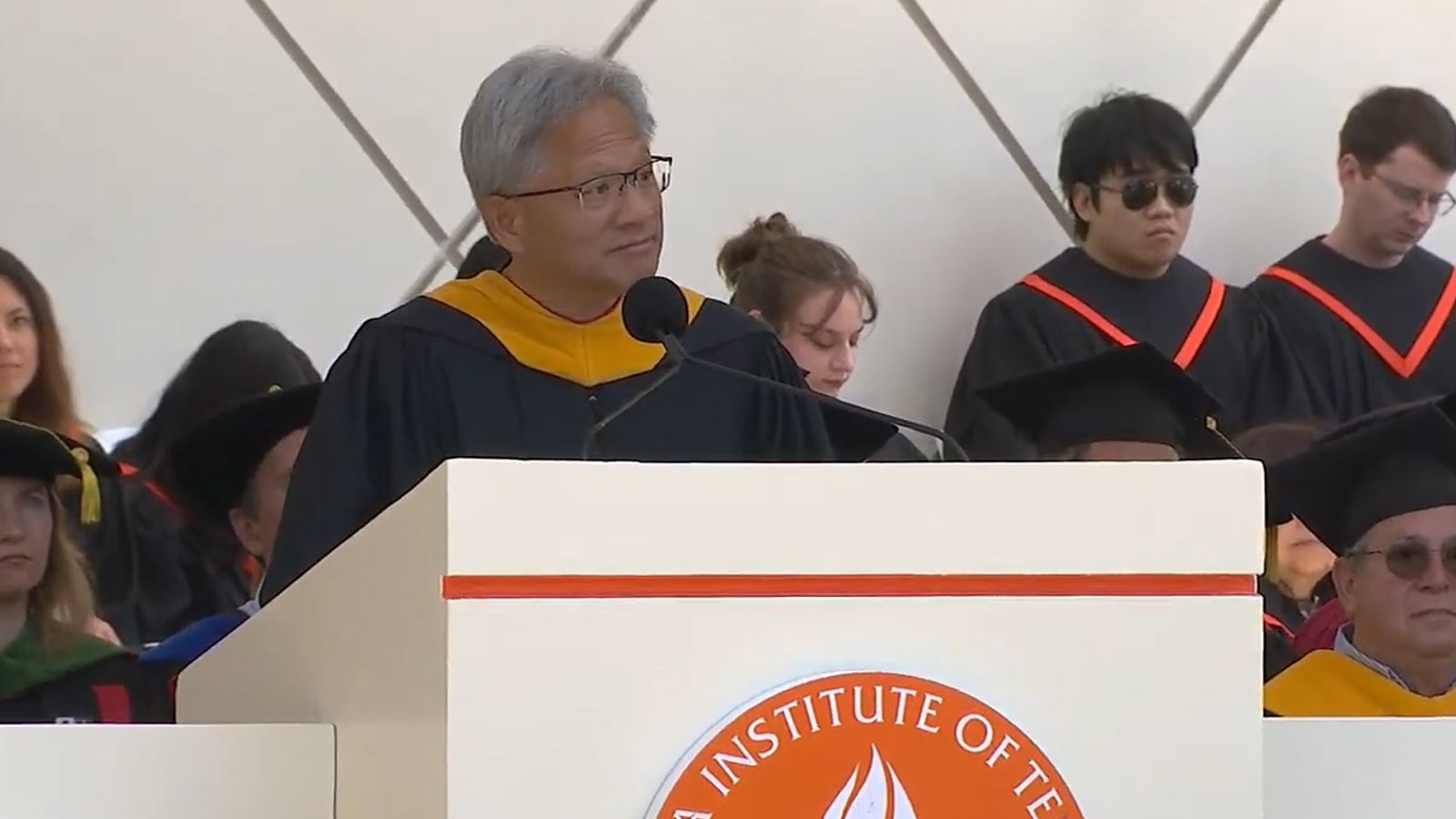
Earlier in the week Nvidia CEO Jensen Huang spoke at Caltech, as the keynote speaker at the Class of 2024 Commencement Ceremony. Huang, one of the richest people in the world, talked about how Nvidia used to build products that “would be incredibly successful, generate enormous amounts of excitement. And then one year later, we were kicked out of those markets.”
The fabled graphics and acceleration computing company went through several rough patches in the 90s. This happened so much that its unofficial corporate motto, which it still uses internally today, is, “Our company is thirty days from going out of business.”
These setbacks forced the company to look for markets with no customers. “Because one of the things you can definitely guarantee is where there are no customers, there are also no competitors,” said Huang. The Nvidia CEO calls these “zero-billion-dollar markets”, which are markets that aren’t worth anything right now, but will be worth billions in the future — like GPU accelerated computing was when Nvidia got started.
Unlike general computing chips from Intel and AMD which can do everything, accelerated computing processors are more focused upon a particular purpose. This led Nvidia down the GPU path; since graphics processing is like other computing-intensive processes, the raw horsepower of its video cards made them ideal for the raw computational horsepower that other industries need.
Nvidia’s investment in accelerated computing (which initially focused on consumer GPUs) paid off. Its RIVA 128 GPU, which launched in 1997, sold a million copies in four months, allowing the company to reinvest its profits in further research and development.
At the time of Nvidia’s founding, Huang hadn’t yet thought of artificial intelligence as the primary driver for the company’s growth. In his speech, he said, “No one knew how far deep learning could scale, and if we didn’t build it, we’d never know.” He also added, “Our logic is: If we don’t build it, they can’t come.” This was a clear reference to Kevin Costner’s Field of Dreams, when the main character heard a voice telling him ‘If you build it, he will come.’
Jensen Huang told the Caltech graduates, “Prioritize your life and you will have plenty of time to do the important things.” They should pursue their craft — their life’s work — with excellence, grit, and dedication. Setbacks will always happen, and they shouldn’t treat it negatively. Instead, they should look at it as an opportunity to follow a new direction, opined the Nvidia CEO.
“I hope you believe in something. Something unconventional, something unexplored. But let it be informed, and let it be reasoned, and dedicate yourself to making that happen,” Huang said. He also added later in the speech, “The world can be unfair and deal you with tough cards. Swiftly shake it off. There’s another opportunity out there — or create one.”
Jensen Huang’s Caltech speech contained a few pop culture references, and he’s also known to be a man of the people, with his trademark leather jacket. He was even able to convince other tech leaders to go out with him to a night market before Computex 2024.
Jensanity
These characteristics made him the darling of the press, sparking 'Jensanity' in Taiwan, but he’s also known as a good leader within his company and allows his team to be the best version of themselves. Although some employees reported being extremely stressed during meetings with Huang, they said it was often because of his extremely high standards — not only for his people, but also for himself. One staff member even told the China Times, “If you haven’t been yelled at by him, it means he doesn't care about you.”
Nevertheless, despite Jensen Huang’s meteoric rise, powered by Nvidia’s AI global leadership, and the 'Jensanity' fever that spread throughout Taiwan during his stay there for Computex 2024, the Nvidia CEO remains humble. After his introduction by the Caltech Chair of the Board of Trustees David Thompson, he began his speech with, “It really makes me cringe listening to all that... I hate hearing about myself.”







